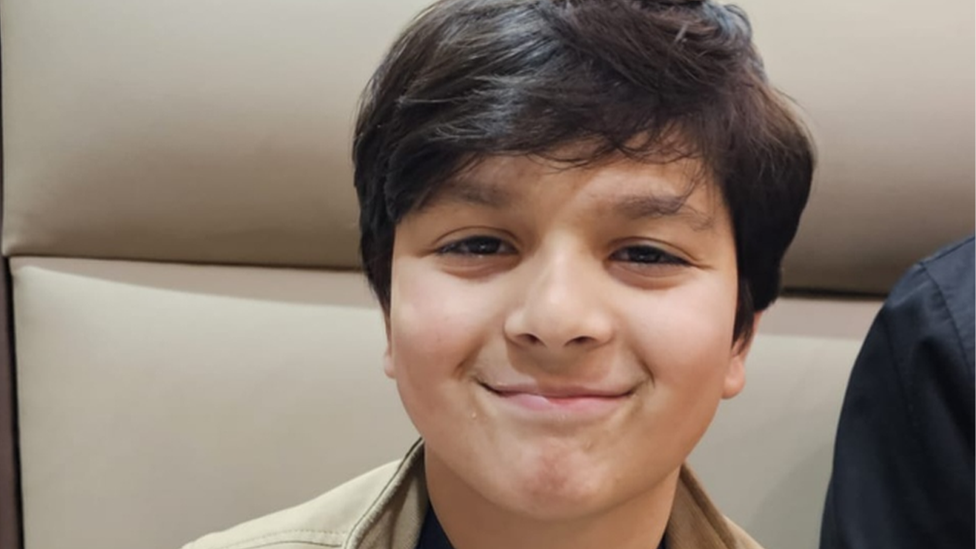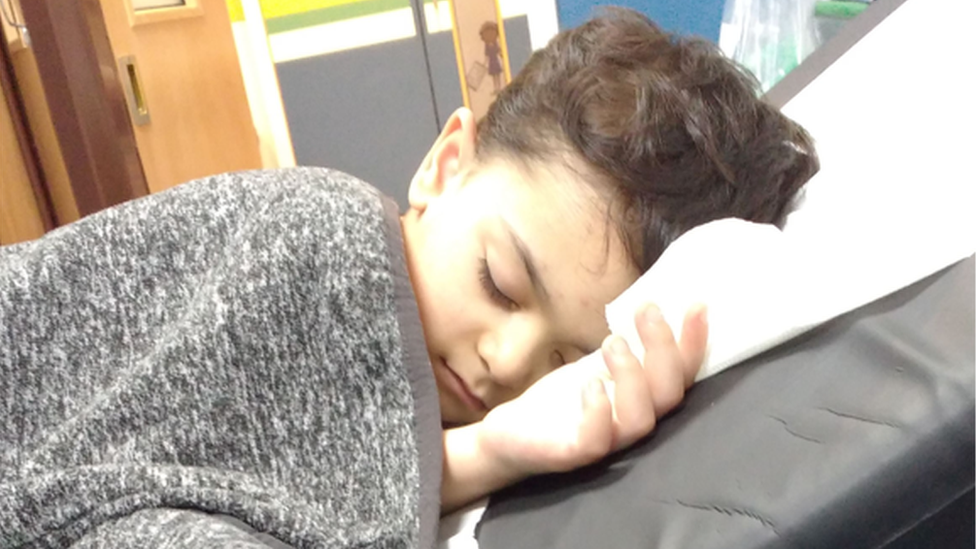Birmingham family credit cancer drug trial with boy's survival
- Published

Abdullah was only given a 30% chance of survival
The family of a Birmingham boy with a rare and aggressive form of cancer believe he owes his life to a clinical trial.
Abdullah became part of the Beacon trial when his neuroblastoma did not respond to chemotherapy.
But adding a drug called Bevacizumab to his treatment significantly increased chances of his tumour shrinking, a new report indicates.
The treatment is now standard for children with this cancer in the UK.
Abdullah was aged four when he was diagnosed with neuroblastoma in November 2017.
An MRI scan showed a 4cm (1.5ins) tumour on his kidney and he was given a 30% chance of survival.
His mother, Bushra, said: "It was our last hope. There were no other options so we signed up thinking that, even if it didn't benefit Abdullah, it might help someone else."
However, the treatment meant his tumours had shrunk sufficiently to enable him undergo a life-saving stem cell transplant.

Abdullah received a stem cell transplant after being given the drug Bevacizumab
The eight months of his life and death treatment are a distant memory for the 10-year-old, now a keen footballer, but the results of the clinical trial have just been published in the Journal of Clinical Oncology.
The study of 160 children and young people, from 43 hospitals in 11 European countries, found the chances of responding to treatment increased from 18% to 26% if Bevacizumab was added to the regime.
Bushra has thanked the Cancer Research UK Clinical Trials unit in Birmingham for giving the family a ray of hope.
"If it hadn't been for this trial, we would have lost Abdullah, so we're incredibly grateful we were given another chance with the new treatment," she said.
'Exciting results'
The combination of a drug which blocks tumours from forming blood vessels, alongside chemotherapy drugs, has led to better outcomes.
Simon Gates, professor of Biostatistics and Clinical Trials at the University of Birmingham and senior lead author of the paper, said: "These are very exciting results that hopefully get us closer to finding treatments for children who develop neuroblastomas.
"Currently, the outcomes are really poor for children who get this horrible cancer and so even seemingly small increases in the chance that a patient is going to be able to shrink their tumours is significant."

Follow BBC West Midlands on Facebook, external, X, external and Instagram, external. Send your story ideas to: newsonline.westmidlands@bbc.co.uk, external